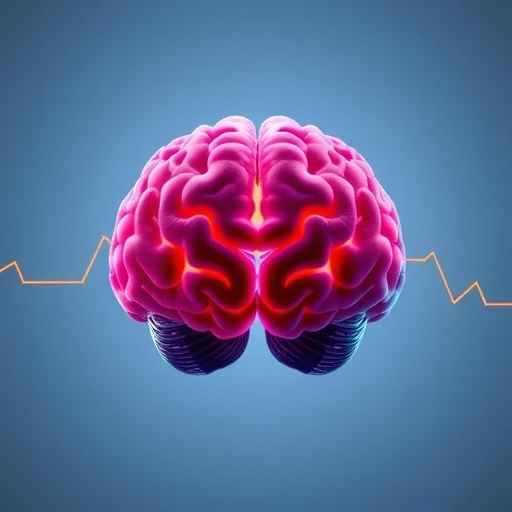Hypertension is a pervasive health issue long known for its impact on cardiovascular health, yet its subtle, insidious effects on the brain have only recently begun to emerge through cutting-edge research. In groundbreaking preclinical work conducted by researchers at Weill Cornell Medicine, the early cerebral consequences of hypertension have been elucidated, revealing a complex cascade of cellular and molecular changes that precede the classical symptoms of high blood pressure. These insights provide a critical window into how hypertension silently undermines brain health, potentially setting the stage for debilitating cognitive disorders including vascular cognitive impairment and Alzheimer’s disease.
This pioneering study, published in the esteemed journal Neuron, challenges the traditional view that hypertension’s neurological damage arises solely from sustained elevated blood pressure. Instead, the research demonstrates that hypertension disrupts brain function well before such rises in pressure become measurable. Utilizing sophisticated single-cell gene expression analysis in murine models, the investigators uncovered that key brain cell populations—endothelial cells, interneurons, and oligodendrocytes—undergo profound gene expression alterations within a mere three days of hypertension induction, even before blood pressure elevations occur.
Endothelial cells, which form the interior lining of cerebral blood vessels, showed marked signs of premature aging characterized by diminished metabolic activity and increased markers of cellular senescence. The vascular aging was also accompanied by early impairment of the blood-brain barrier, a critical interface that regulates nutrient transport and shields the neural environment from harmful substances. This compromised barrier function points to an early breach that could permit neurotoxic agents and inflammatory molecules to disrupt the tightly controlled milieu necessary for optimal brain operation.
Interneurons—specialized inhibitory neurons that finely balance excitatory signals within neural circuits—were found to be notably compromised. The observed damage induced a hyperexcitability state reminiscent of that seen in Alzheimer’s disease, suggesting that hypertension could instigate imbalances in neural circuitry that undermine cognitive processes. This insight connects vascular dysfunction to neurodegenerative pathways through a shared disruption of neuronal homeostasis, which may accelerate memory deficits and cognitive decline.
Additionally, oligodendrocytes, the cells responsible for producing and maintaining myelin sheaths around axons, exhibited downregulated expression of genes vital for their renewal and function. Myelin integrity is essential for rapid nerve signal conduction and overall neural network efficiency. Deficits in oligodendrocyte function may thereby degrade neuronal communication, compounding cognitive dysfunction. Over time, these early cellular deficiencies culminate in significant neurological impairment as seen at the 42-day mark in hypertensive mice, aligning molecular pathology with observable cognitive decline.
The rapid onset of these changes highlights that the brain is not merely a passive victim of systemic hypertension but rather an active participant in disease progression. Such findings prompt a reevaluation of therapeutic strategies, emphasizing the need for interventions targeting early cellular and molecular alterations in brain vasculature and neural cells before irreversible damage occurs. Current antihypertensive treatments primarily focus on lowering systemic blood pressure; however, these agents often fail to prevent or reverse the cognitive impairments associated with hypertension, suggesting alternative pathological mechanisms.
Intriguingly, the team tested losartan, an angiotensin receptor inhibitor widely used in clinical practice for managing hypertension, and discovered it could rescue early gene expression abnormalities in endothelial cells and interneurons. This points to the renin-angiotensin system’s critical role not only in blood pressure regulation but also in maintaining cerebral cellular homeostasis. By mitigating molecular perturbations at the blood-brain interface and within neurons, angiotensin receptor blockers may offer neuroprotective benefits beyond their cardiovascular effects.
Dr. Costantino Iadecola, senior author of the study and a leading figure in neuroscience research, emphasized that these discoveries open new avenues for combating hypertensive brain injury. Understanding the molecular cascade triggered by hypertension in its earliest stages could transform how clinicians approach cognitive health, encouraging preemptive treatment plans designed to preserve brain function. The potential to develop drugs that both regulate blood pressure and shield neural cells from degeneration could significantly impact public health, given hypertension’s global prevalence.
The study’s robust methodology, employing advanced single-cell RNA sequencing technologies, allowed the researchers to dissect cellular responses at an unprecedented resolution. Disentangling cell-type-specific gene expression changes provided precise targets for future intervention and unveiled the intricate interplay between vascular cells and neurons in health and disease. Such granularity also facilitates the identification of biomarkers for early detection of hypertensive brain injury, which could inspire diagnostic tools to predict cognitive outcomes.
As hypertension remains a top risk factor for stroke and Alzheimer’s disease, insights from this research underscore the interconnectedness of vascular and neurodegenerative pathologies. This work advocates for a holistic approach to brain health, integrating cardiovascular and neurological care from the outset of hypertension diagnosis. It also encourages further exploration into how aging blood vessels may provoke downstream neural dysfunction, with implications for understanding broader mechanisms of brain aging and dementia.
Simply reducing blood pressure may not suffice to halt cognitive deterioration; instead, therapies must address the underlying cellular senescence, energy metabolism deficits, and synaptic imbalances induced by hypertension. The early timing of these changes suggests that intervention windows are narrower than previously assumed, underscoring the urgency of early diagnosis and treatment. Future research will likely focus on delineating specific molecular pathways involved in vascular aging and interneuron vulnerability to design targeted neuroprotective agents.
In sum, this compelling study not only redefines the timeline of hypertension’s impact on the brain but also charts a strategic path forward in combating cognitive disorders linked to vascular health. By illuminating cellular and molecular disruptions that culminate in neurodegeneration, the research strengthens the scientific rationale for integrated cardiovascular and neurological therapeutics. As the population ages and the burden of hypertension rises, such innovations offer hope for maintaining cognitive vitality and quality of life.
Subject of Research:
Article Title:
News Publication Date: 14-Nov-2025
Web References: https://www.ahajournals.org/doi/10.1161/JAHA.124.039849
References: Neuron (publication)
Image Credits:
Keywords: Hypertension, Neurodegenerative diseases, Alzheimer disease
Tags: Alzheimer’s disease and hypertensioncellular changes in hypertensioncognitive disorders and hypertensionearly effects of hypertensionendothelial cells and hypertensionhypertension and brain healthhypertension and cognitive declinemolecular changes in brain healthneurological damage from hypertensionpreclinical hypertension researchsingle-cell gene expression analysisvascular cognitive impairment and hypertension





